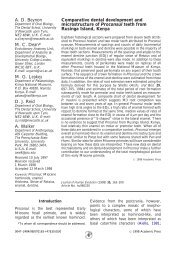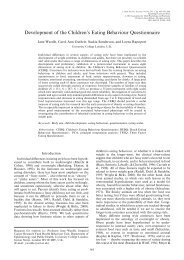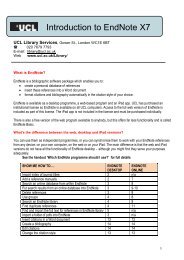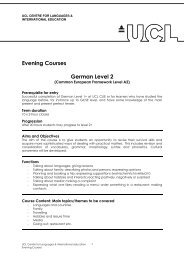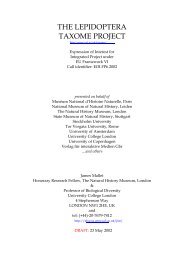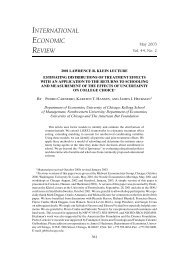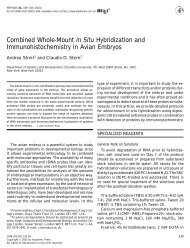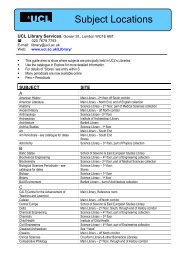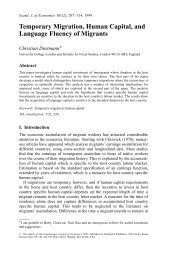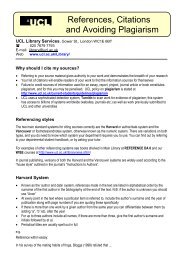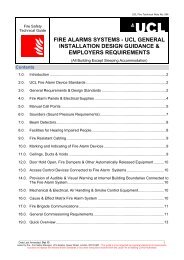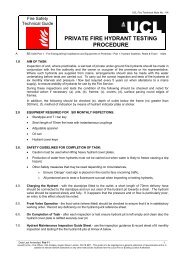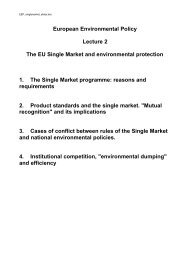The Ambitions of Contract as Promise Thirty Years On ... - UCL
The Ambitions of Contract as Promise Thirty Years On ... - UCL
The Ambitions of Contract as Promise Thirty Years On ... - UCL
Create successful ePaper yourself
Turn your PDF publications into a flip-book with our unique Google optimized e-Paper software.
<strong>Ambitions</strong> <strong>of</strong> <strong>Contract</strong> As <strong>Promise</strong> 24 August 2012 discussion draft: do not quote or reproduce without permission<br />
remarkable feature <strong>of</strong> the institution that what before w<strong>as</strong>—or may have<br />
been 14 —morally indifferent or optional becomes nonoptional, and it becomes<br />
nonoptional because we want it to be so <strong>as</strong> a way <strong>of</strong> achieving our purposes.<br />
This is not to say that promissory obligation in general does not have its<br />
roots in deeper moral soil. <strong>The</strong> institution, <strong>as</strong> such, is not an invention ex nihilo.<br />
It depends on the deeper morality <strong>of</strong> trust and respect for persons. It is an<br />
institution, like language, that allows us to accomplish an infinite variety <strong>of</strong><br />
ends. But the efficacy <strong>of</strong> language depends on a morality <strong>of</strong> truth telling. If<br />
communications had no more than a random relation to the truth, language<br />
would be useless to accomplish its (our) ends. Truthfulness depends on trust,<br />
and trust on a morality <strong>of</strong> mutual respect. Trust may be (mis)characterized <strong>as</strong><br />
merely providing a more or less secure prediction <strong>of</strong> another’s future behavior.<br />
(“Trust him to lie, cheat and steal if he thinks he can get away with it.”) But<br />
trust allows a particular kind <strong>of</strong> prediction, coordination and collaboration b<strong>as</strong>ed<br />
on a recursive and transparent mirroring <strong>of</strong> mutual recognition and respect.<br />
We start with respect, which allows trust, which allows language, which finally<br />
14 I qualify here because it is quite possible that a person may unintentionally incur an obligation to<br />
another by acting in such a way that that the other person h<strong>as</strong> come to rely on him, such that he is<br />
obliged to avoid the harm that would be caused by the disappointment <strong>of</strong> that reliance. But that is<br />
not a promise. See FRIED, supra note 1, at 9-14. Compare Thom<strong>as</strong> Scanlon and his principle L.<br />
T.M. Scanlon, <strong>Promise</strong>s and <strong>Contract</strong>s, in THE THEORY OF CONTRACT LAW: NEW ESSAYS<br />
86, 92 (Peter Benson ed., 2001).<br />
8




